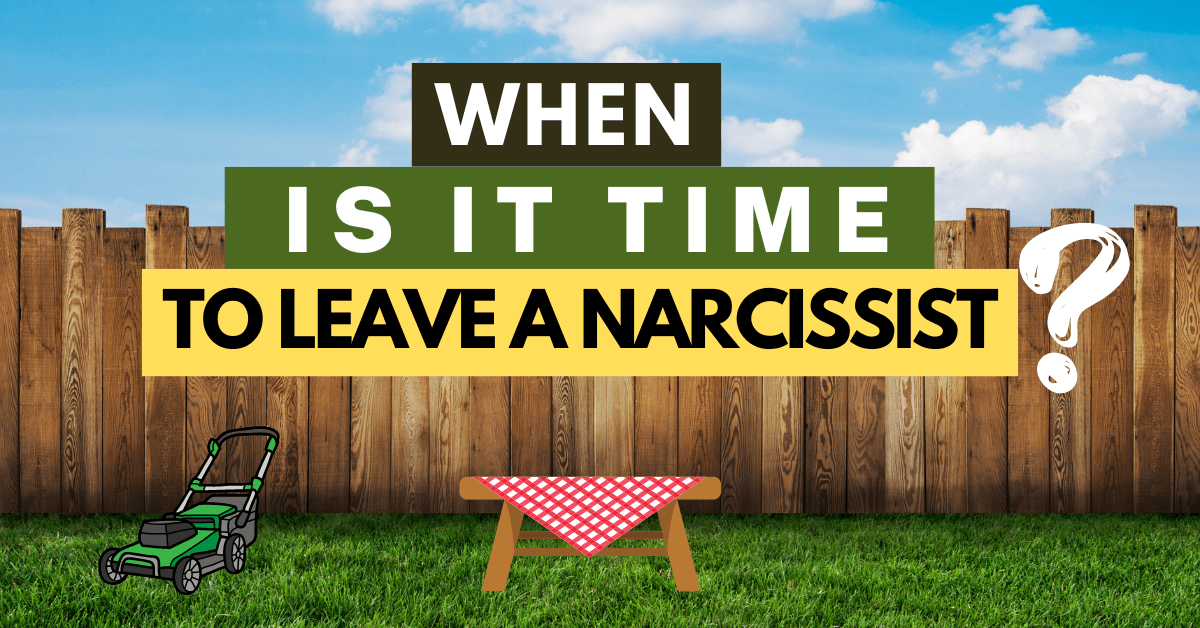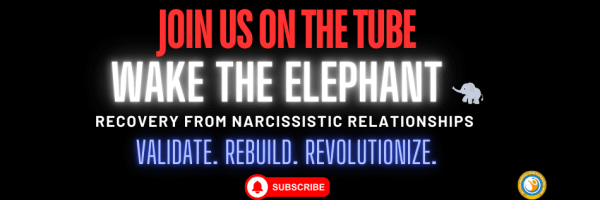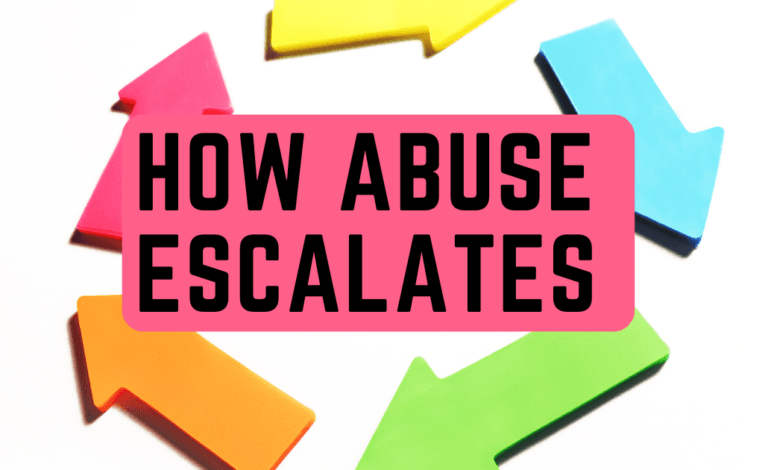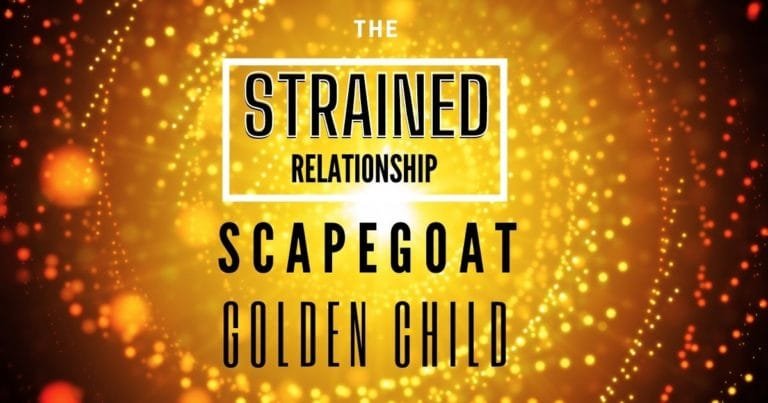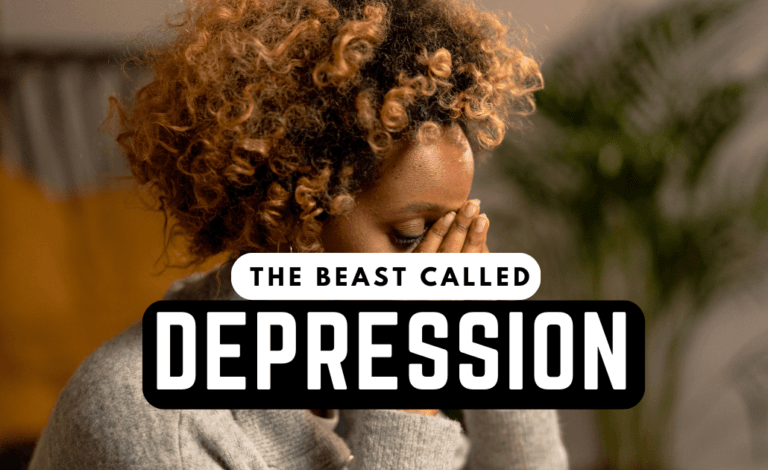When is it Time to Leave the Narcissist?
The answer to this question is it will depend on your particular situation.
But let’s go into this a little further.
In this article, we will discuss (1) why this is a difficult question to answer, (2) why it is challenging to leave a narcissistic relationship; and (3) the role of your intuition to protect you in the midst of a narcissistic relationship.
Listen to the Podcast Episode
When? When? When to Leave?
If you believe you are dealing with a narcissist or toxic individual, (take the informal quiz here), the question I hear a lot is when should I leave?
And for a moment, I can take this question and digest it and provide multiple responses for when you should do something…but
It’s difficult to answer this question because it’s very personal to your situation.
With hope and being on your side, I state the answer must come from you and I think deep down you know this. But it’s hard to come to this conclusion and let’s talk about why this is.
Why It's Hard to Leave a Narcissistic Relationship
Table of Contents
While actively involved in a narcissistic relationship, there are many “forces” used against the victim to try to devalue, many tactics which are performed covertly/overtly.
Not only is the devaluing difficult to emotionally sort through, but there are other hurdles to overcome such as:
- Cognitive Dissonance
- Stockholm Syndrome
- It May Be Difficult to Hear Your Own Intuition and you may be Confused
- You May be Used to Taking Direction and Obeying
- You May Think “It” was a One-Time Event or the Situation May Resolve Itself Soon
- Still Have Hope the other Party Will Change their Behavior
- Don’t Want to Upset the Apple Cart or Anyone With Your Decisions
- Not Sure of Next Steps
The decision to leave is typically made when we can evaluate the unknown risk of leaving versus remaining in the current situation.
If you are in a relationship with a narcissist and felt it was time to leave, but haven’t, please be kind to yourself as you may be juggling a lot on your plate. The decision is not always easy as there are layers of information to sort through.
A similar occurrence occurs with the scapegoat. When the scapegoat is overlooked, criticized, and treated as less than others over and over again by not only caretakers, they can begin to internalize how others treat them over and over again. They can take on self-sabotaging behaviors and may suffer from poor or improper self-esteem. Learn about the dynamics between the Scapegoat and the Golden child, why he relationship is strained, what the Scapegoat can do, why the scapegoat is disrespected (and worse), and even ostracized.
Intuition is at Work Behind the Scenes
Your intuition is on your side; however, it may be silenced at this time.
Or… you may be at a point where you may not trust your intuition — and this is understandable.
Yes, the narcissist has been etching away at this for as long as you have been in a relationship. They have wanted you to lose connection with your own intuition, to let it go, and wholeheartedly and unabashedly follow their lead without question.
The narcissist has been “grooming” and “conditioning” their target for an extended time with the attempt and motive to control — and to control the outcome of what their target will think and do.
Some call it mind-control, and some label is as it coercive control. Others call it manipulation and even more recognize it as psychological/emotional abuse. These are all correct.
Being in a relationship with a narcissist, or even in a family situation, it’s more than mistreatment, it’s psychological and it has an impact every single day and especially the longer being exposed to it.
Your intuition has been looking out for you.
Your intuition is there to guide you, and let you know when something is wrong — it’s meant to protect you.
Listen to your intuition as it is looking out for your best interest and it may be one of the biggest assets you have on your side. It’s okay if you do not trust it at first.
There is comfort from like-minded individuals who have gone through similar circumstances stories are shared of what happened. This is incredibly beneficial and needed. As many share their stories of events that have transpired, may we continue to see the patterns of behavior, so we can make the best choices and decisions when ready.
Subscribe to Lynn’s YouTube Channel, Wake the Elephant, here.
Were you also the Family Scapegoat?
A similar occurrence occurs with the scapegoat. When the scapegoat is overlooked, criticized, and treated as less than others over and over again by not only caretakers, they can begin to internalize how others treat them over and over again. They can take on self-sabotaging behaviors and may suffer from poor or improper self-esteem. Learn about the dynamics between the Scapegoat and the Golden child, why he relationship is strained, what the Scapegoat can do, why the scapegoat is disrespected (and worse), and even ostracized.
